Searching is fundamental to using Vernon CMS. Find exactly the records and data you’re looking for by using Vernon’s powerful search capabilities.

Image from Vecteezy.
Overview
Searching is one of the most important skills that you’ll need to learn to get the most out of Vernon CMS.
If you’re an experienced user, you might pick up a trick or two from this article. If you’re at the beginner level, we really hope that this article gives you more confidence and improves your ability to find things in Vernon CMS.
In this article, we’ll cover:
Using the Search bar
The Search bar is at the top of Vernon CMS. If you don’t have any file windows open, it’ll be unavailable until you open a file to search on.
So let’s open the Object – Identification window from the Navigator:
Now the Search bar says ‘Search on Object’:
The Search bar looks in a limited number of search fields. You can see what those search fields are by clicking on the three-dot menu to the left of the Search bar:
For example in the Object file, the Search bar looks in these fields:
- Accession Number
- System ID
- Name/Title
- Other ID
- Artist/Maker
- Classification
You can restrict the search by selecting one of these fields. For example, accession numbers may contain the same numbers as System IDs or Other IDs. So you might want to restrict a search to just the Other ID field.
You can do that by selecting the row for Other ID, and then clicking OK.
Now the Search bar says, ‘Search on Object Other ID’.
To change back to all fields, click the three-dot menu, click the row for Reset to default and click OK.
Using search keys
Another way to restrict your search in the Search bar is to use search keys. Rather than open the search options to select a field, you can type directly in the Search bar.
You enter the search key for a field, then a backslash, and then your query. For example, to restrict your search to the Other ID field, you can enter:
other\550
This search finds a Crown Lynn shell vase in the Vernon CMS Demo system with that number in the Other ID field.
The search keys are listed in the search options window:
Using search operators
Vernon also has several search operators to help you find what you’re looking for. Search operators are special characters.
Whenever you want to search on partial terms, such as part of a word or number, you must use a search operator.
Search operators can also be used to find ranges of numbers.
List of search operators and examples
| Operator | Name | Example | What this example does |
| ] | Starts with | cat] | Finds things that start with cat. For example, catalogue. |
| [ | Ends with | [cat | Finds things that end with cat. For example, tomcat. |
| [ ] | Contains | [cat] | Finds things that contain cat. For example, scatter. |
| [] | Sounds like | []cat | Finds things that sound like cat. For example, Kat. |
| … | Ranges | 2010.1…2010.999 | Finds things within this range. |
| < | Less than | <1000 | Finds numbers from 1 to 999. |
| > | Greater than | >1000 | Finds numbers from 1,001 to the highest number in the index. |
‘Starts with’ operator
The most common operator is the right square bracket (or closing square bracket):
]
This is called the ‘starts with’ operator. It tells Vernon to look for anything that starts with your query.
For example, in the Vernon CMS Demo system we have some paintings of Vernon Street by Pauline Thompson. Coincidentally, the Vernon Systems office was previously on this street.
Searching for vernon st returns no results, even though Vernon Street is in the Name/Title field of these Object records.
So instead, I can search for vernon st] to find these paintings. That’s because when you search on partial words, you must use a search operator.
Here’s the search bar with my search query:
Here’s the Authority Options window showing the found records:
And here’s one of those records:
Use the ‘start with’ operator in an authority field
You can also use the right square bracket in authority fields to speed up your data entry. For example in the Object Type field, I may want to enter digital projector. Rather than typing the full term, or clicking the Options button to select it, I could type: digi]
When I press Enter, the full term will appear in the field. That’s because I’ve told Vernon to find terms that start with digi.
Of course, if there were multiple terms that started with digi then the Authority Options window would appear, and I’d need to select the one I wanted.
Enter the ‘starts with’ operator in the Search bar to view all records in a file
Another tip is that you can enter just the right square bracket in the Search bar to find everything in a file. That is, starting with anything. You can then select records to view and edit them.
For example, you can click on a blank row of the Subject Category field:
Then click Go To on the toolbar:
That opens the Subject Category file.
Then in the Search bar, you can enter just the right square bracket:
When you press Enter, the Authority Options window will open and list all the terms in that file.
You can then select one or more records and click OK to open them.
A word of warning: don’t do this on the Object file. In files with many records it will take some time to display all of them, so you can press the Escape key to cancel the display of the records if you need to.
‘Ends with’ operator
Another search operator is the left square bracket (or opening square bracket). It’s called the ‘ends with’ operator.
[
Entering the left square bracket and then a search query will find things that end with that search query.
Let’s say I want to open Keith McDonald’s record, but I can’t remember if his last name is spelled McDonald or MacDonald.
I can open the Person – Identification window, then enter [donald like this:
When I press Enter, Vernon will find anything that ends with donald, including Keith McDonald and Jo MacDonald. I can then select the record that I want.
‘Contains’ operator
You can put square brackets around your search query to look for anything that contains your search query.
For example, I can search for [tree] like this:
When I press Enter, Vernon will find records that contain tree and street.
‘Sounds like’ operator
If you put both square brackets before your search query, Vernon will look for anything that sounds like your search query.
Let’s say I want to open Jean Batten’s record but I’m not sure how her last name is spelled.
I can search on the Person file for []baton like this:
When I press Enter, records that sound like baton are found, including Jean Batten and Baden Powell.
Using Advanced Search
When you want to search in other fields or do more complex searches you need to use Advanced Search.
Click Advanced in the toolbar.
This opens Advanced Search.
Our Vernon CMS Help website contains several guides for different types of searches that you can do with Advanced Search:
- Advanced Search overview
- Search on text fields
- Search on date fields
- Search on accession number fields
- Search for an absence of data
- Search on photo/audio-visual fields
- Search in a saved list
- Search with a Select Statement
- Search across files
- Browse all the terms in a field’s search index

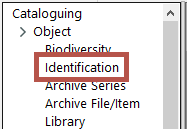


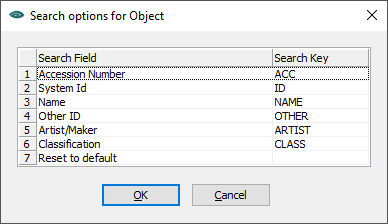
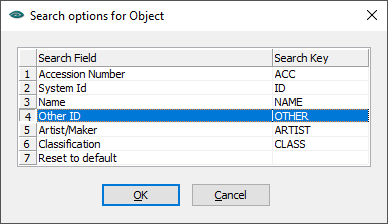

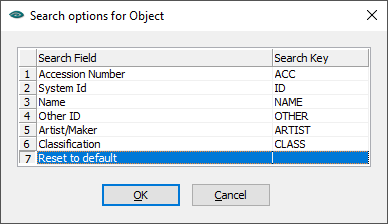
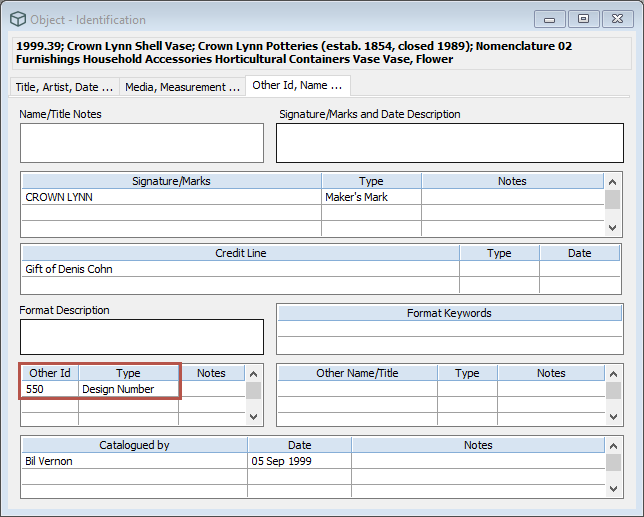
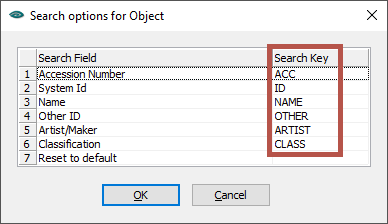
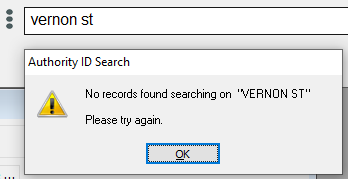

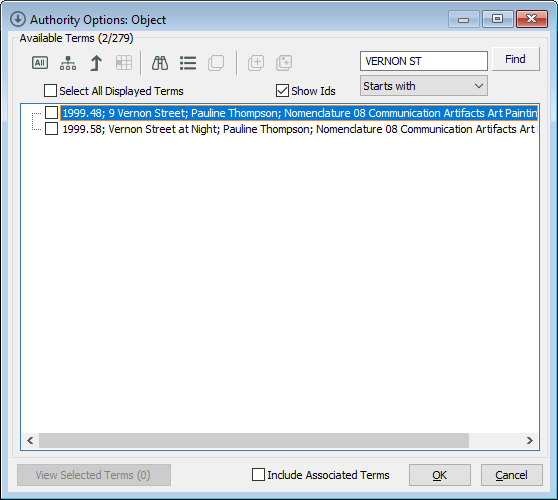
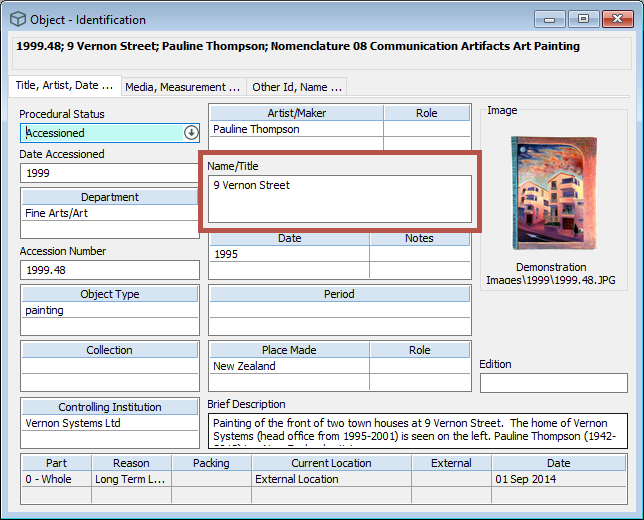


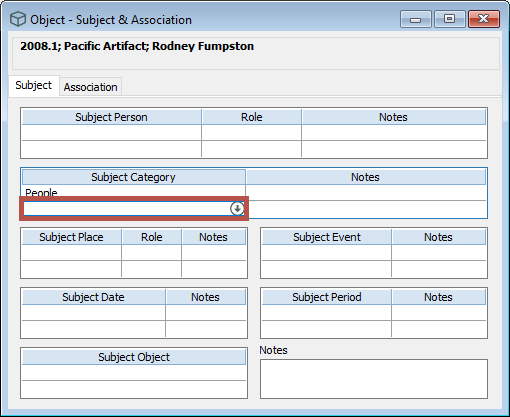

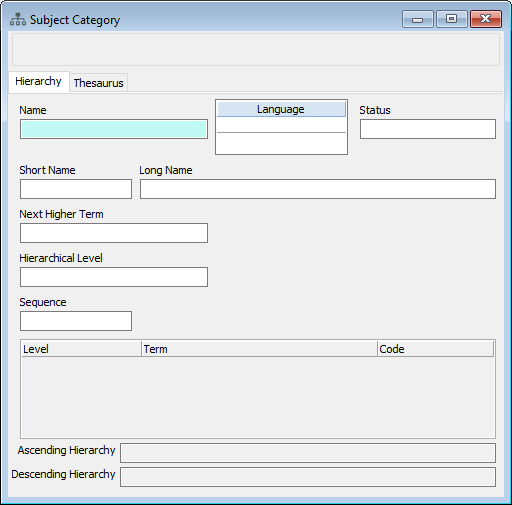

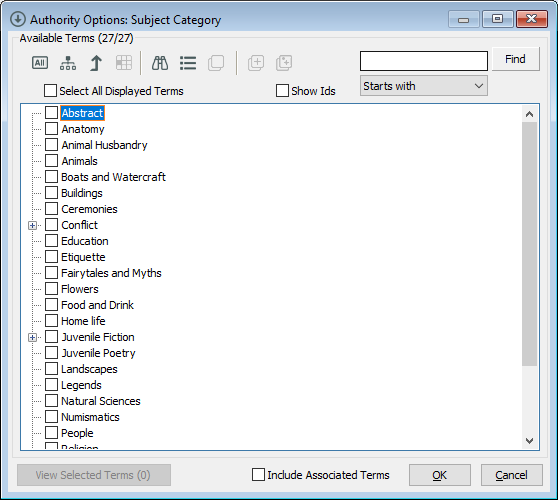
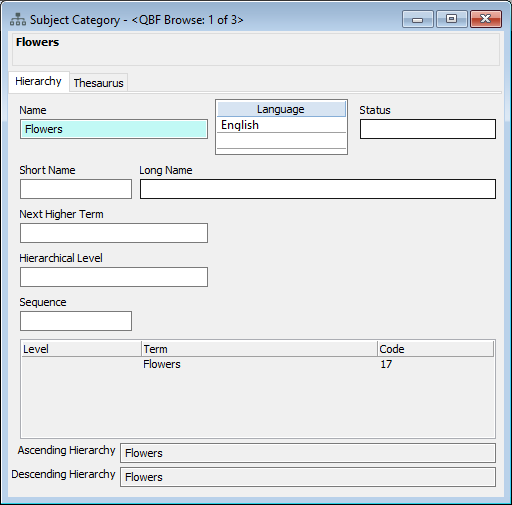

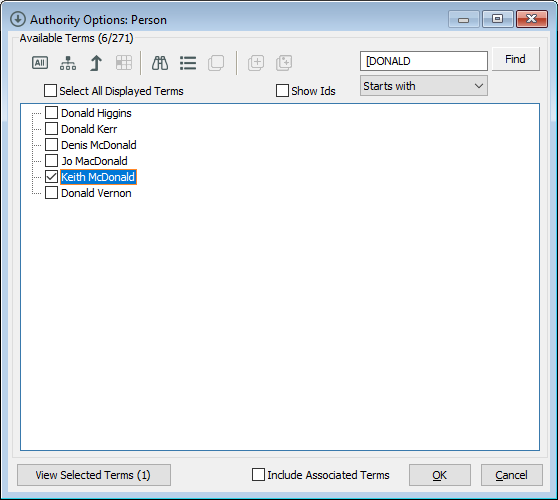

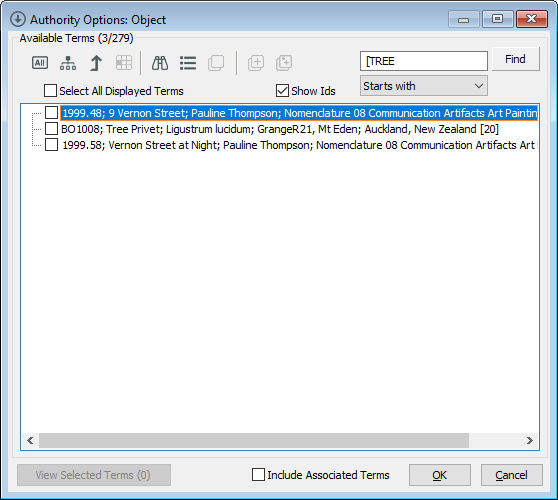

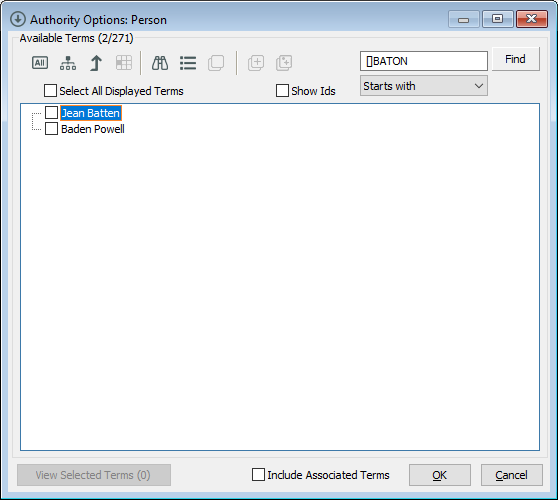


[…] Read about searching in Vernon CMS […]